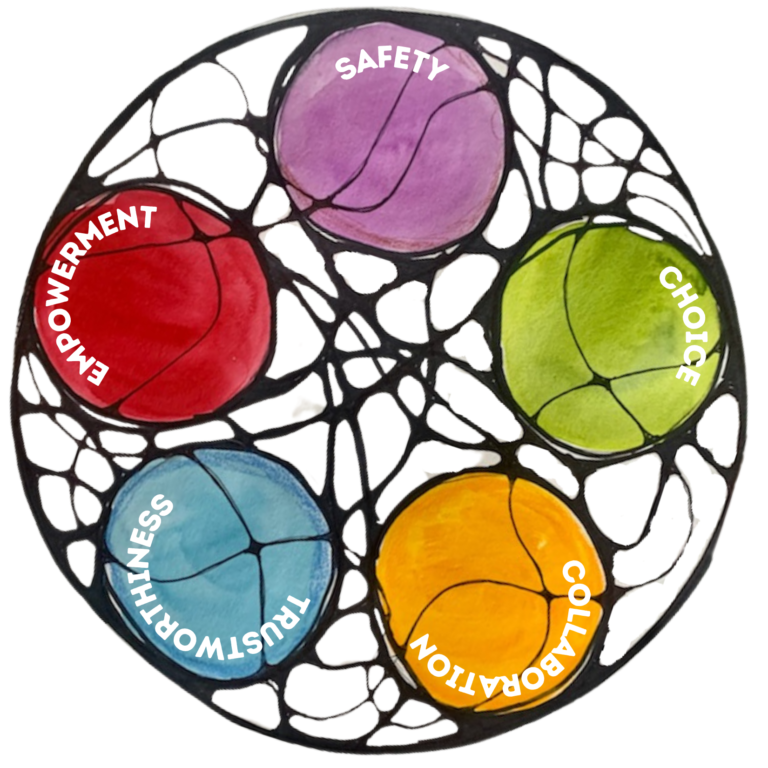
Trauma-Informed Care is an approach in mental health and beyond that assumes that an individual is more likely than not to have a history of trauma. Trauma-Informed Care recognizes the presence of trauma symptoms and acknowledges the role trauma may play in an individual’s life. Understanding traumatic stress and how it impacts people is central to a trauma-informed approach.
Trauma-Informed Care requires us to make a paradigm shift from asking: “What is wrong with this person?” to “What has happened to this person?”
Trauma-Informed Care is an approach that integrates five principles: safety, choice, collaboration, trustworthiness and empowerment.
We like to use the phrase, “Trauma-Informed Lens” as a way to integrate these principles in relationship with other people, whom we do not have a therapeutic relationship or have varying responsibility of care. In other words, the presumption that there is a very likely potential that anyone we come in contact with has experienced some form of trauma. We are in relationship with the team members we work with, the customers we serve in any context and those who provide services to us. We believe that those relationships can be more comfortable, more emotionally safe and ultimately stronger and more functional with the presence of the trauma-informed principles.
We recognize however, that if we’re not in a therapeutic relationship, then it very well may not be appropriate to engage with or explore what the trauma is. This is idea of the “Trauma-informed Lens.’ It is the idea that we can look at our relationships and contact with other people and contribute to a shared experience that is more likely to feel safe for those who have experienced trauma, and is less likely to re-traumatize, or trigger trauma-based anxiety.
This course will explore each of these principles and what it can look like to bring them into our interactions as a way of being.






